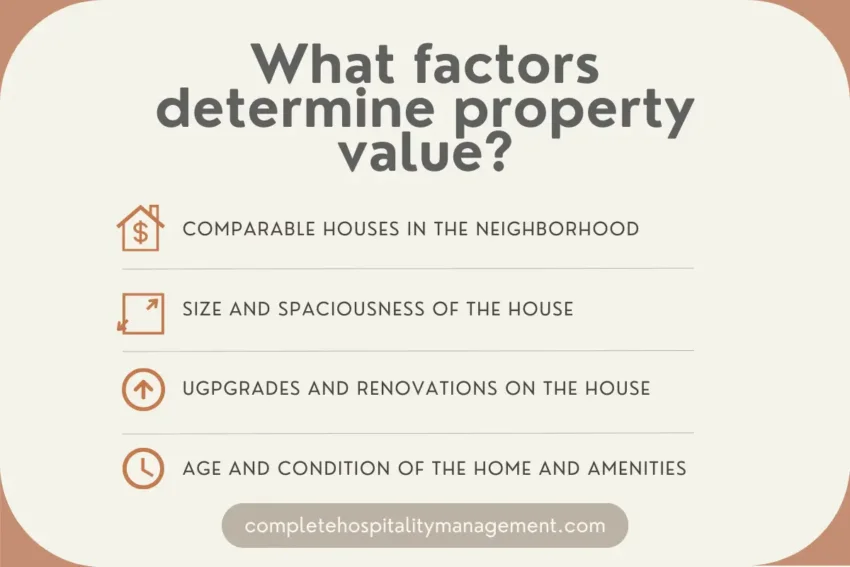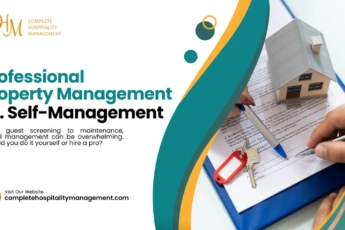8 Ways to Invest in Real Estate – Main Advantages and Disadvantages of the Most Popular Options in 2026
Wondering about the best ways to invest in real estate? Let’s determine the best 8 ones!
Investing in real estate can often be compared to visiting a shoe store: so many options are available that it becomes difficult to choose which one to keep. Most people who want to invest in this market know about rental properties, that is the real estate where you invest to later generate a certain percentage of monthly profit through tenant payments. However, this is only one of the many ways to earn income in real estate.

8 ways to invest in real estate: main pros and cons
Why investing in real estate is so popular
It is well known that real estate investment is one of the best options to invest, due to its high capital gains and its stability compared to other sectors. Real estate is considered one of the most important investments you can make, it’s a smart move that offers great growth potential in return.
To some degree, we can all in some way recognize the significant financial rewards that can be gained from investing in real estate. Some many advantages and benefits outweigh the costs, and as an investor it is possible to be earning a steady stream of income to achieve much-desired financial freedom.
The truth is that investing in real estate is one of the most attractive investment alternatives today, and has always been. One of the most important reasons is because real estate is a tangible asset: a more stable and long-lasting investment alternative.
But we also have to say that it is not as easy as many think to manage in this sector, especially if you do not know the market, if you do not have any type of experience or advice.
Advantages and disadvantages of
investing in real estate
Real estate investment can offer numerous advantages, making it a popular choice for investors seeking long-term financial growth and stability. Here are some key pros and cons of investing in real estate:
Pros and cons of real estate investment
| Advantages | Disadvantages |
|---|---|
| Properties can appreciate over time, leading to capital gains. | Acquiring property requires significant upfront investment. |
| Rental properties generate steady cash flow through tenant rent. | Real estate is less liquid compared to other investments. |
| Real estate adds diversity to investment portfolios, reducing risk. | Property values can be affected by market cycles. |
| Investors can enjoy tax deductions for expenses like mortgage interest and depreciation. | Property ownership incurs ongoing maintenance costs. |
| Real estate values often rise with inflation, protecting investment. | Dealing with tenants includes potential vacancies and property damage. |
| Property purchases can be leveraged with borrowed funds to amplify returns. | Managing properties demands time and effort. |
| Investors have control over property improvements and value enhancement. | Poor location choices can impact property value and rental demand. |
| Rental income offers reliable cash flow, helping cover expenses. | Real estate investments are subject to complex rules. |
| Properties can contribute to long-term financial growth and stability. | Investments tie capital to a single asset class. |
| Properties can appreciate, building equity for investors. | Obtaining financing can be challenging, affecting investment opportunities. |
| Rental income offers a source of passive income. | Rental income can be unpredictable due to vacancies and market changes. |
| Real estate investments are tangible assets with intrinsic value. | Values can decrease due to market trends or changes. |
| Investors can add value through renovations and improvements. | Interest rate changes can impact financing costs and returns. |
| Rental income can increase over time with demand. | Rising property taxes can impact profitability. |
| Real estate investments can be part of a long-term wealth strategy. | Properties can be exposed to environmental and natural risks. |
Additional pros of investing in real estate
Investing in property can bring some other advantages not mentioned in the table above:
- This is a recommended investment for those who have some fear of risking too much or losing their capital, but the return is certainly worth it.
- Housing creation represents economic growth: there is more capital flowing to invest, it generates many more employment opportunities, among other positive effects.
- Adhering to a strict schedule or being present in every situation is unnecessary.
- Protection against currency devaluation. This sector protects your capital from inflation or devaluation. With the high inflation that the Covid-19 lockdowns have generated, their rental income, and the value of the property increasing significantly, real estate investors are not victims of inflation, since as their cost of living goes up, so does your cash flow.
- Additional property leasing income is one of the best ways to add to a peaceful and carefree retirement. If you think ahead, then real estate is definitely for you. Remember that this is a stable sector, even in the midst of this global crisis, it has been maintained, has resisted and even evolved.
So, if you want to know how to make a profit in real estate, we want to share and deepen some ways to be able to invest your money in real estate. And as with any investment, we must say that there are some pros and cons to each of the options for real estate investments. Knowing this will help you decide the best type of investment for you, one that fits your budget and expectations.
Top 8 ways to invest in real estate
So, if you want to generate significant income in the short, medium, and long term, here are 8 ways to invest in real estate. And before choosing the appropriate one, consider the next 4 factors determining property value.

4 factors which determine property value
1. An option to buy a home to rent out
This type of real estate investment is one of the best-known. If you manage to rent out the property to a tenant who pays the rent on time, then you will have a monthly income that, a priori, is safe. In this same sense, the monthly money can be used to pay off the mortgage on the apartment and thus make the investment even more round.
A property can leave a return that ranges from 10% to 13% per year. Of course, profitability will always be inversely proportional to the property’s value. That is to say, the more economical, the further away and of the lower quality the property is, the lower the rent; the more stable, more expensive, and better location, then the rent goes up.
Among the pros that we find when buying a home to rent it out, we find that:
- This type of residential property is common on the market.
- It is quite easy to find anywhere in the real estate market.
- Financing is cost-effective and generally inexpensive.
Among the cons, we find that:
- Limited exit strategies if you want to sell the property, one of the most viable options is to sell to other investors or the same tenant so as not to assume vacancy expenses. Still, they are challenging to execute for individual investors.
- Not all properties represent a proper option to rent since the demand of the tenants can be minimal or with returns well below the market if the houses do not have the required characteristics in terms of size and location among many other aspects.
Always remember that customers choose with their eyes no matter how beautiful your property is. Therefore, ensure not only high-quality repairs, but also take no less high-quality photos. CHM Inc team has been doing this for over 10 years and is ready to help you take such gorgeous photos for your listings that no one can pass by!
2. Pre-sale purchase of property
Buying a house or apartment that is on pre-sale will always leave benefits to consider. Sure, it will always depend on what you want to buy. So, if you are looking for a house to live in, doing it in advance will guarantee that you can choose the property that best suits you before anyone else according to your needs, such as access to privacy or development.
But one of the greatest benefits that pre-sale buying gives you is that it guarantees you to obtain a higher return on investment. Of course, that is because the prices of houses or real estate increase as the construction period progresses.
3. The decision to buy to flip
This is a type of real estate investment strategy in which the investor buys properties with the aim of selling them for a profit. The main advantage translates into making money in the very short term thanks to the sale of the property after making the relevant renovations.
Basically, flipping is buying a property that is in poor condition and then making specific repairs and selling it later to generate some short-term profit. One of the disadvantages for this type of business is that there are generally no credits.
4. Short-term or vacation rentals
In the same way, you can buy a home, make the necessary adjustments and then rent it for a certain time, at a daily price that is sometimes more convenient than renting it with an annual contract.
These properties are rented for short periods on online travel platforms like Airbnb. Temporary and vacation rentals can help you generate higher rents in special periods, such as in the summer or when there are high-demand events in the areas where the property is located.
Rental periods typically range from one night to several weeks, giving you flexibility should you wish to use the property.
If you want to be part of a short-term rental business but can’t devote enough time to it, you should consider property management. Such a service will allow you to take a minimal part in the process, but make a big profit!
5. Buy, repair, and sell real estate
These are properties that are in poor condition, for that reason they have a low cost, you take advantage of that to buy them, repair them and later sell them at the best possible price.
Buy a property in poor condition, make specific repairs, and sell it later to generate some short-term profit.
One of the disadvantages for this type of business is that there are generally no credits.
6. Real estate investment trust
This occurs at the moment when one or several owners hand over their real estate to be managed by others, institutions or companies. At the same time, these companies can invite other investors.
Real estate investment trusts can be private or listed on major stock exchanges. These trusts can specialize, for example, in casinos, agricultural land, logistics centers, offices, and homes.
Provides significant liquidity to your investment, being able to sell your participation more easily later, especially if the trust is listed on a stock market.
7. Buying a multi-family property
This type of investment is when you buy between 2 to 3 houses, but in this case they are united but independent.
Duplex, triplex and quadruplex properties are a great way to increase the scale of your investment and focus your efforts. In general, the administration and the whole process of maintaining the property is easier, when several tenants are next to each other.
8. Investing in turnkey properties
These are already equipped properties with a tenant, also known as “turnkey properties”. Here are some key points to consider:
- Ready rental. No renovations needed, immediate rental income.
- Passive income. Managed by property companies, less hands-on.
- Less risk. Reduced chances of unexpected repairs or vacancies.
- Research stable rental demand and potential appreciation.
- Provider vetting. Research turnkey providers carefully.
- Cash flow. Analyze income, expenses, and potential profitability.
- Long-term strategy. Define income, appreciation, or hybrid goals.
- Market research. Study local market trends and conditions.
- Due diligence. Thoroughly inspect property and financial projections.
While turnkey properties can offer attractive benefits, it’s important to carefully evaluate the specific property, turnkey provider, and local market conditions before making a decision. Each investment carries its own risks and rewards, so consider seeking advice from real estate professionals and financial advisors.
Conclusion
These were 8 ways to invest in real estate. The reality is that you can find many options to choose from when investing in this type, everything will depend on how much budget you have, your time and what you are looking for.
Frequently asked questions about
ways to invest in real estate
1. What real estate is best to invest in?
The best real estate investment depends on your goals. Popular options include residential rentals, commercial properties, REITs, crowdfunding, and fix-and-flip. Research local markets, assess risk, and choose based on income or appreciation goals.
2. How do you successfully invest in property?
Successfully investing in property involves a strategic approach, thorough research, and careful decision-making. Here’s a concise guide to help you navigate property investment:
- Define your goals;
- Financial readiness;
- Market research;
- Property type;
- Due diligence;
- Financing;
- Network;
- Negotiation;
- Property management;
- Risk management;
- Legal and regulatory compliance;
- Long-term perspective;
- Maintenance and upkeep;
- Continuous learning;
- Exit strategy;
- Professional help;
- Emotional detachment;
- Evaluate progress.
Successful property investment requires research, careful planning, and a willingness to adapt. Every investment is unique, so customize your approach based on your circumstances and goals.
3. What type of real estate investments are the most profitable?
Profitability in real estate varies due to location, type, and strategy. Commercial properties, short-term rentals, value-add projects, multifamily units, and development can offer high returns. Thorough research, expert advice, and alignment with goals are essential for success.
4. What type of real estate is best for beginners?
For beginners in real estate investing, starting with a relatively straightforward and lower-risk property type is often advisable. Here are some types of real estate that are commonly considered suitable for beginners:
- Single-family homes are a popular choice for beginners. They are typically easier to manage than larger multifamily properties and can attract diverse tenants, including families and individuals.
- These small multifamily properties can be a good step beyond single-family homes. You can live in one unit and rent out the others, helping to cover mortgage costs.
- Condos can offer a more affordable entry into real estate investing. They usually have lower maintenance responsibilities compared to single-family homes.
- Unlike condos, townhouses can provide a lower-cost option with some communal maintenance benefits.
- Ready-to-rent properties that require minimal renovation or management can be a good starting point for those looking for a passive investment.
- REITs allow you to invest in real estate without directly owning properties. They offer diversification and are more hands-off.
- Crowdfunding platforms enable you to invest in a portion of a larger real estate project with a relatively small investment.
- Small apartment buildings (4 to 10 units) can be manageable for beginners, offering a mix of rental income sources.
- Opt for properties with stable rental demand and consider hiring a property management company to handle day-to-day tasks.
- Starting with properties close to where you live can make managing and responding to tenant needs easier.
For beginners, research your local market, understand risks, seek advice, and commit to learning. Choose a property type wisely, and as you gain experience, explore more diverse investments.
5. How to invest $10k for passive income?
Investing $10,000 for passive income involves options like dividend stocks, bonds, real estate crowdfunding, peer-to-peer lending, and high-yield savings accounts. Consider your risk tolerance and goals, and research each option thoroughly. Diversification and a long-term perspective are key.
6. What is highest and best value in real estate?
The concept of highest and best value considers various potential uses for a property and assesses which would yield the greatest benefit. For example:
- Residential development. If a piece of land is in a rapidly growing residential area, the highest and best value might involve subdividing the land and constructing housing units to meet the demand for new homes.
- Commercial use. In a bustling commercial district, the highest and best value might involve constructing retail shops, offices, or restaurants to capitalize on foot traffic and business activity.
- Mixed-use development. In urban areas, combining residential, commercial, and recreational elements in a single development might maximize the property’s value by catering to different needs within the community.
- Renovation or redevelopment. Determining whether to renovate, repurpose, or redevelop for existing properties can help achieve the highest and best value based on current market trends and demand.
- Zoning considerations. Zoning regulations play a significant role in determining the allowable uses for a property. Achieving the highest and best value involves aligning the property’s use with zoning requirements.
- Environmental factors. In certain cases, preserving natural features or creating green spaces might be the highest and best value for a property, enhancing its appeal and contributing to sustainability.
Determining the highest and best value requires a comprehensive analysis of the property’s potential uses, market conditions, financial feasibility, and long-term goals. Real estate professionals, appraisers, and developers often assess these factors to help property owners make informed decisions about maximizing the value of their real estate assets.
7. What is the best return on investment in real estate?
The best return on investment (ROI) in real estate depends on factors like location and strategy. Strategies with potential for higher ROI include rental properties, fix and flips, short-term rentals, multifamily units, value-add opportunities, and commercial real estate. Thorough research and understanding your goals are crucial before investing.
Updated on: . Author:






